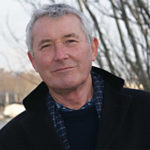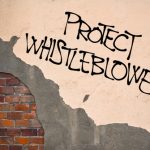Good People Break Bad Laws: The Criminalisation of Whistleblowers

These days, Australia is known as a nation governed by those that attempt to silence the free press, have an ongoing agenda of eroding citizens’ rights, pass national security laws establishing surveillance state apparatus and persecute whistleblowers.
However, the same can’t be said for the general population that, for the most part, praises the actions of whistleblowers, who, at great personal cost to themselves, expose the lies of the powerful in the public interest.
Take Bernard Collaery, for instance. The renowned Canberra barrister will soon stand trial in the ACT for his part in communicating government secrets regarding an Australian spying operation in East Timor that fellow whistleblower and former ASIS agent Witness K initially revealed.
At most of Collaery’s pre-trial hearings – including the proceedings underway this week – a solid group of his supporters appear outside the ACT court conducting protests calling on the Coalition government to drop the prosecution against the former capital territory attorney general.
And just like Collaery, fellow whistleblowers, such as ex-ADF lawyer David McBride, former ATO employee Richard Boyle and current independent federal MP Andrew Wilkie, all hold quite an esteemed place within the Australian psyche for speaking truth to power.
An immoral oil grab
“The real trial will be the trial of the government of the day,” Mr Collaery told Sydney Criminal Lawyers in April, “the handful of people who’ve been responsible for diverting our country from its moral and proper ethical purposes as a democracy.”
The lawyer made the remarks relating to his upcoming closed-court trial during an interview about his recently released political history Oil Under Troubled Water, in which he exposes some other inconvenient truths on how the Australian government dealt with the new nation of East Timor.
Due to legal restrictions, Collaery was careful not to mention the incident he’s now facing criminal charges for communicating the details of, but the gist of the matter is the Australian government illegally bugged the East Timorese cabinet offices in 2004.
The former ASIS officer now referred to as Witness K approached the Inspector General of Intelligence and Security in 2008 and explained that he had been involved in the bugging operation that gave the Australian government the upper hand in oil and gas field negotiations.
The IGIS then told Witness K that he could speak to an ASIS-approved lawyer, which turned out to be Collaery. And following 2013 ASIO raids on both men’s houses, the Commonwealth Director of Public Prosecution somewhat belatedly moved to prosecute the pair in 2018.
Another legal eagle
Former Australian Defence Force lawyer David McBride is another legal professional, who found classified information at his fingertips as a result of working on behalf of the government, which left him with no choice but to blow the whistle.
McBride pleaded not guilty last June to five charges, which consist of one count of the theft of Commonwealth property, three counts of breaching defence legislation and another count of unauthorised disclosure of information.
These charges relate to the lawyer having handed over a swag of classified military documents to ABC journalists in 2016. These went on to form the guts of The Afghan Files report, which was the article that led the AFP to raid the Sydney ABC offices in June 2019.
McBride has always maintained that the focus of the report was not what he had sought to expose. The ABC journalists detailed war crimes perpetrated by special forces troops, whereas the lawyer wanted to reveal an ADF management and politicians, who had long abandoned foot soldiers.
After being deployed to Afghanistan as a legal officer in 2013, McBride asserts that he was witness to an “Instagram war”, where those in charge were more concerned about keeping up appearances, than winning any battles, and Australian soldiers were unnecessarily losing their lives as a result.
Incidentally, after McBride moved to initially represent himself in the closed-court proceedings, Collaery stepped in as his legal representative as of February.
Strengthening the veil
The laws that whistleblowers break in relation to government secrets are often contained in national security legislation.
As Mr Collaery explained, he’s “charged with conspiracy to breach the Intelligence Act”. While McBride was charged under the Defence Act, although one of his alleged offences fell under the federal Crimes Act at the time he was charged.
But, as government is so adapt at doing, the one in Canberra continues to strengthen laws at the Commonwealth level aimed at keeping its dealings hidden.
A case in point is the National Security Legislation Amendment (Espionage And Foreign Interference) Bill 2018, which the Turnbull government passed in June two years back. It marked a further attempt to silence whistleblowers, as well as the journalists that help them expose government secrets.
This legislation inserted new offences into the federal Criminal Code that allow current or former Commonwealth officers to be gaoled for up to 7 years for communicating information that harms the nation’s interests. And this penalty jumps to a maximum of 10 years for an aggravated offence.
Exposing the lies of Howard
Of course, Australia’s most renowned whistleblower is Andrew Wilkie. Now a federal independent MP, Wilkie underscores the idea that those who reveal the corruption of government are often good people who simply can’t look the other way.
Back in 2003, Wilkie was a senior intelligence officer at the now defunct Office of National Assessments, which served to advise the Australian PM’s office on international political, strategic and economic developments.
Wilkie resigned his position in protest to the Howard government’s position on joining the war in Iraq. And right before the outbreak in March that year, he appeared on ABC radio following his resignation explaining that he thought the invasion was wrong, as Iraq posed no real security threat.
Wilkie was the only serving Western intelligence officer to expose the truth about the invasion of Iraq, and for doing so he was ridiculed, received death threats, lost a number of good friends and the pressure caused his first marriage to collapse. Although, he never faced criminal proceedings.
But, as Collaery and McBride are set to go before the ACT Supreme Court once more, it might be asked whether the authorities would have found some avenue to attempt the prosecution of Wilkie if his actions were carried out under the current Australian political climate.







